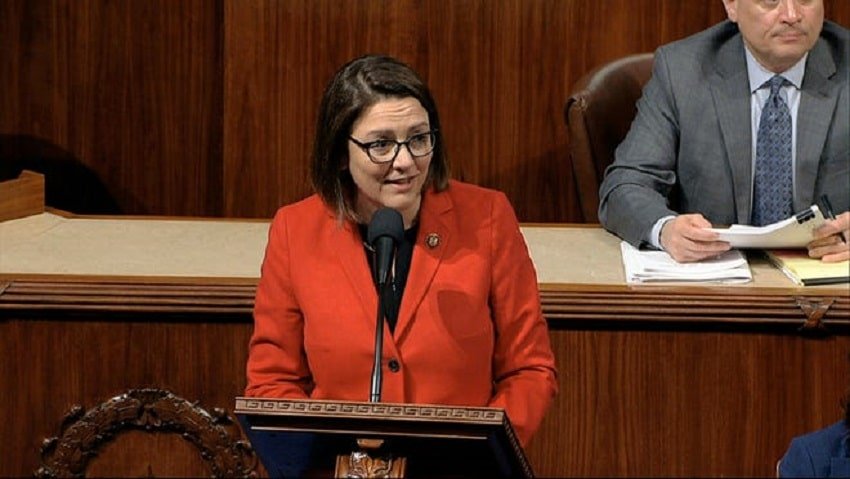WASHINGTON – President Joe Biden’s $1.9 trillion COVID-19 relief legislation has transpired Congress and features a switch to the tax code that Democrats have recognized like a tool to battle child poverty and Republicans have denounced as “welfare.”

Underneath the legislation, the American Save Plan, American families can claim as much as $3,600 per child under age 6 and $3,000 for kids as much as age 17 for just one year to assist combat the economical harm to the pandemic. House Democrats are searching to help make the tax change permanent. The present tax credit can be $2,000 per child.
Biden supports a lasting extension from the credit, and White-colored House press secretary Jen Psaki stated a week ago he’d be “open to consider avenues to achieve that.” He’s likely to sign the legislation Friday.
Here’s options to consider concerning the credit:
Who’s qualified and just what will the credit do?
The legislation boosts the tax credit from $2,000 to no more than $3,600 and expands eligibility to families who make no or hardly any earnings every year.
It is a significant increase in the current amount, a yearly $2,000 tax credit that’s been essentially since a Republican-brought tax overhaul in 2017. Under current law, people are qualified to get as much as $1,400 per child if the quantity of tax credit exceeds the quantity of taxes owed. It phases out when incomes exceed $400,000 for any household or $200,000 for people.
The revised credit would phase out when incomes exceeded $150,000 for any household or $75,000 for people.
Unlike the present yearly rebate, the loan will be sent to families like a “periodic” payment, based on the legislation. The Treasury Department may likely determine the regularity from the payments, which may begin in This summer according to 2019 or 2020 tax statements.
A Nationwide Bureau of monetary Research report this past year believed that many children living towards the bottom 10% of incomes were “completely ineligible” for that current credit which the underside 30% could receive merely a partial credit. 1 / 2 of Black and Latino children were qualified for that full credit.
The left-leaning Focus on Budget and Policy Priorities believed Democrats’ changes would lift 9.9 million children above or nearer to the poverty line. A lot of individuals could be Black, Latino, or Asian American children whose families didn’t qualify as their household incomes are extremely low to entitled to the tax credit.
Based on the Joint Congressional Committee on Taxation, a nonpartisan congressional panel, the proposal might cost greater than $110 billion for that year the expanded credit is at effect.
Do Republicans offer the proposal?
Republicans opposed the credit’s inclusion within the COVID-19 relief package. Requested Tuesday concerning the credit, House Minority Whip Steve Scalise, R-La., stated Republicans were concerned Speaker of the home Nancy Pelosi “required benefit of the crisis to fill the balance with mainly stuff that do not have anything related to COVID.”
Previous iterations from the credit have received Republican support, however. The final growth of the loan in 2017 was spearheaded partly by Ivanka Trump and Sen. Tim Scott, R-S.C., and a few Republican senators have introduced other ways to grow the kid tax credit.
Sens. Mike Lee of Utah and Marco Rubio of Florida backed an offer expanding the loan to $3,500 and $4,500 for youthful children but tying the advantage to employment.
What’s next for that credit?
Democrats on Capitol Hill are eying a lasting growth of the loan despite Republican opposition. Expanding the loan permanently may also avert a revocation of advantages from countless families who’ll make use of the credit in next season.
Repetition. Richard Neal, D-Mass., the chairman from the tax-writing House Methods Committee, stated Tuesday he was thinking about how you can “amend it making it permanent,” but “what we should did is not likely disappear.”
“Getting something from the (tax) code is oftentimes harder than getting something within the code,” he noted.
Repetition. Rosa DeLauro, D-Conn., who’d recommended for that tax credit for pretty much 2 decades, told reporters Wednesday she was “positive that it’ll be permanent.”
Repetition. Suzan DelBene, D-Wash., a lead sponsor of legislation making the loan permanent, told USA TODAY expanding the loan within the stimulus bill would “be an amazing part of helping kids across the nation,” however the credit was “good lengthy-term policy,” so “we have to allow it to be permanent.”
One progressive Democrat, Repetition. Katie Porter, D-Calif., had expressed concerns concerning the current structure from the tax credit’s earnings cutoffs, which she stated disadvantaged single parents due to the greater costs of nurturing alone.
DelBene told USA TODAY the legislation she was spearheading to help make the extension permanent might have an earnings cutoff of $130,000 for any single parent and $180,000 for any household.
